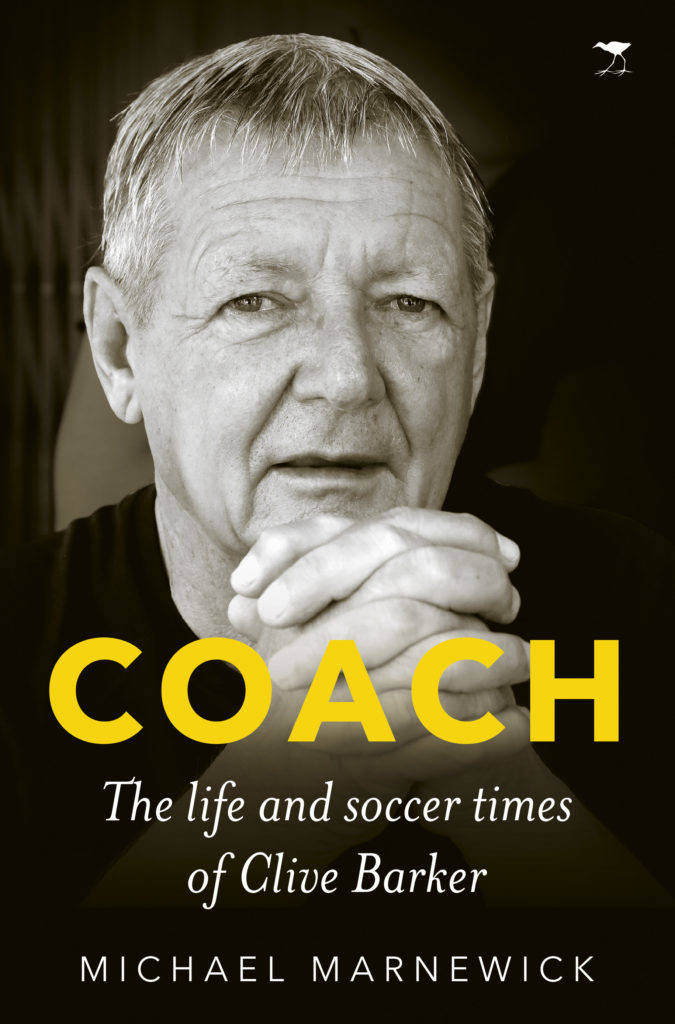Clive Barker is South Africa’s most successful national football coach post-1994. He led the national football team in its first and only African Cup of Nations victory in 1996 before coaching Bafana Bafana to World Cup qualification in 1998. He also enjoyed great success with football teams Durban City, Bushbucks and Amazulu in league and cup competitions.
Coach: The life and soccer times of Clive Barker is not only an in-depth look at Clive Barker the coach, but also gives insight into Clive Barker the man, the husband, the father and the patriot, who helped shape legends in South African football by working with and coaching talent in townships. Truly, like his hero Nelson Mandela, a man of the people.
Coach is an important record of South Africa’s football history, capturing the social and political upheaval in the country during the dark days of apartheid and leading into South Africa’s golden period of international football when Barker, as the country’s most successful and longest running national coach, led the team to their only African Cup of Nations success in 1996, before qualification for the 1998 Soccer World Cup.
Below is an excerpt from Coach: The life and soccer times of Clive Barker:
Madiba Magic
“Sport has the power to change the world.” – Nelson Mandela
Nelson Mandela had been freed and was an international icon. Next to religious leaders, no one could match his humility, love and understanding and he was embraced and accepted throughout the world.
Nelson Mandela was a true man of the people and I would regularly receive phone calls from him at home. One day the phone rang and Suzie de Villiers, my 10-year-old niece, answered. She then called me, saying, “Clive, there’s a guy on the phone who wants to talk to you; he says his name is Nelson.”
During the Africa Cup of Nations, we had the support of Nelson Mandela and I’d received a phone call asking if I minded if he came to visit. So it was that he came to the Sunnyside Park Hotel where we were based for the duration of the tournament. It was getting to a stage when he was getting a little frail and I asked Neil Tovey to take him around by the arm and introduce him to the players. I didn’t trust myself with that honour because I was likely to pull him down with my own dodgy knee.
And, of course, his visits were frequent. There was such an aura when he would arrive, he’d bring his grandchildren along and they would mingle with the players’ children. I can remember him asking the families if they were too frightened of him to even say hello, such was the respect he commanded. They were so much in awe of him and of being in his presence that they just stood around, wide-eyed.
“Madiba had a lot of respect for people; whether you were young or old, he treated you with respect,” Lucas Radebe remembers. “He also had great respect for Clive and whenever Madiba came to visit, like everyone else, he wanted to listen to what Clive had to say.
“I recall one morning when we had to wake up at 5am, which was unheard of and had never happened before, but we were going to meet Madiba and Clive was the first one there. In fact, I don’t think he even slept that night.”
Madiba had been a huge motivating factor in the Springbok defeat of the All Blacks when they won the Rugby World Cup the previous year, and a year later he exhorted Bafana Bafana to an even more meaningful victory.




